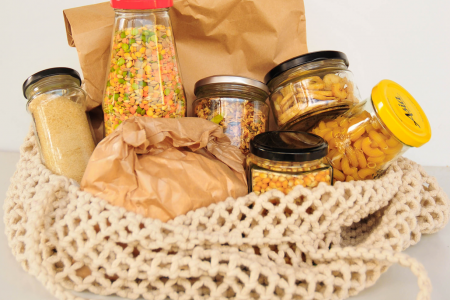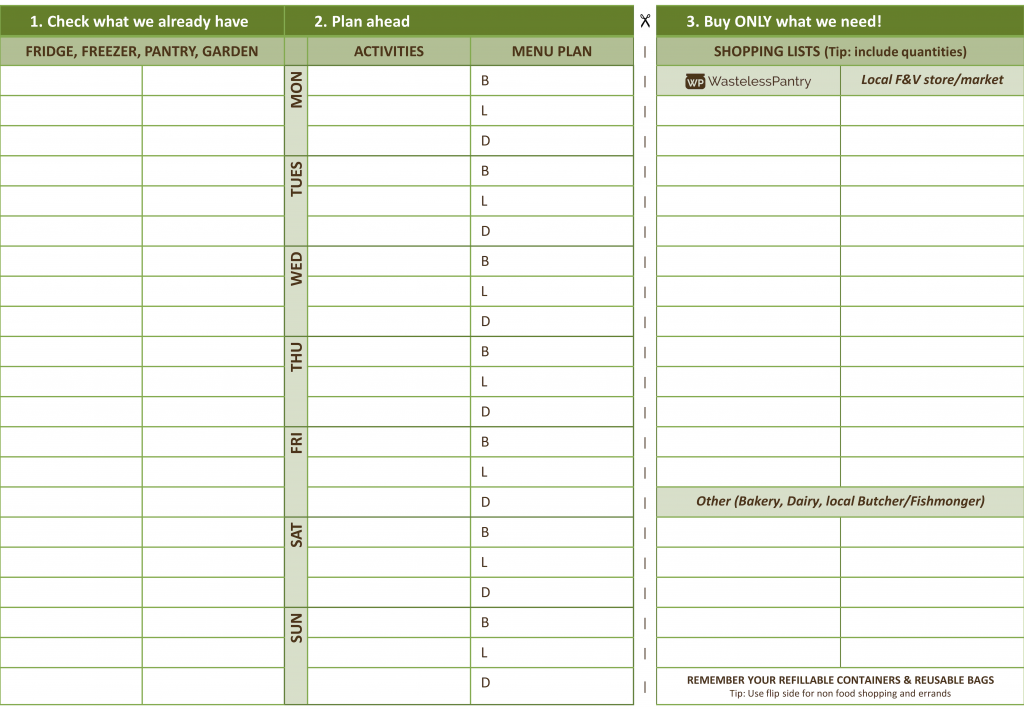
It turns out that we,
in Australia, throw out vast amounts of food every week. Some estimates indicate
that over a year, the average household discards $2200 worth of food!
We do it because we
overestimate how much we need, underestimate how much we already have, serve
more than our families will eat, and forget about all those leftovers we have
hiding away somewhere.
There are easy
solutions that can help you reduce your waste and they only take a moment…
- Take a moment to clear out your fridge, freezer and pantry. If you haven’t done it in a while, challenge yourself to stay away from the shops until they are at least ¼ empty. Why? If your storage is too full of food, you won’t know what is in there and will likely double up when you hit the shops.
- Set up a compost bin system. It’s just a bucket or a container that you put your scraps in. All of them. Yes, even the stinky stuff you found in the back of the fridge yesterday. You store it in the kitchen that you then take outside to a compost bin (plenty available secondhand on Gum Tree) or bury in your garden later. Why? Getting up close and personal with your waste helps you to get to know WHAT you are wasting and HOW MUCH. Maybe you find out that the kids are throwing away whole sandwiches – so maybe you can stop feeding them for a while (I’m joking, of course). Or maybe you find out that it is always leftovers – so maybe you dedicate space at the front of the fridge, so they are easier to find or pop them straight into the freezer next time.
- Get your head clear on Used By vs Best Before. Things that you buy at Wasteless Pantry have a best before – such as rice, pasta, spices – which means that even after this date if they have been stored properly, they will not harm your health to eat. They just might not be as flavoursome as they used to be. Whereas things that are past their Used By date can be a health hazard and should be composted to be safe.
- Develop an autopilot response ‘No, thanks’ to “Specials”. Unless you are 100% certain that you will use the item before it goes bad, then take a deep breath and walk away.
- Label your leftovers. Permanent markers wash off most containers so just write the date and name straight on there before it goes in the fridge or freezer. If you know what it is and how old it is, you’ll have a better chance of making sure they get eaten.
- Think about the leftovers before you start cooking the meal. Does this meal freeze well? If it doesn’t, how long will we have to get through any leftovers before they go off because almost always there are leftovers! If it’s likely to go to waste, then be more thoughtful about portion control upfront.
- Speaking of portion control – serve less and encourage going back for seconds, especially with kids. Even if it is uneaten on the plate, most families are unlikely to save excess food that gets served so don’t serve it. Your kids won’t starve, most likely.
- Shop weekly, instead of daily. We all know the feeling of popping to the shops for one thing and coming home with at least a bag full. So instead, plan your shopping for once a week and challenge yourself not to go back until next week. We’ve even put together a handy tool to help you with this one. This way you can remember what you already have, what you’re planning to make as well as what you need to get. Easy!

Weekly Menu Plan PDF
